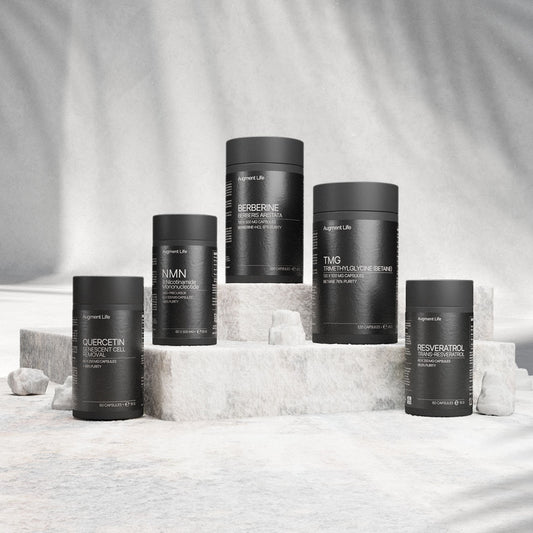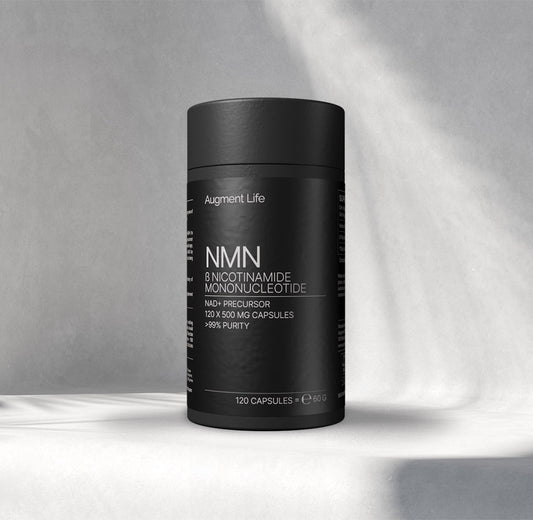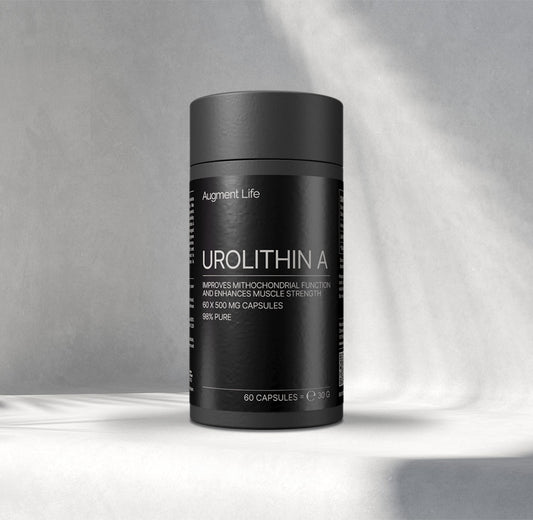Wil je langer leven en gezonder blijven? Het geheim zou kunnen liggen in het aanpakken van iets wat de meeste mensen negeren: chronische inflammatie. Ongecontroleerde inflammatie kan het verouderingsproces versnellen en bijdragen aan verschillende ernstige gezondheidsproblemen, waaronder:
- hartziekten,
- prediabetes,
- diabetes type 2,
- artritis,
- metabool syndroom,
- obesitas.
Een van de beste manieren om inflammatie te bestrijden, is door veranderingen in je dieet en levensstijl. Lees verder en ontdek de wereld van anti-inflammatoire voedingsmiddelen.
Wat is Chronische Inflammatie?
Inflammatie is een natuurlijke reactie van je immuunsysteem om het lichaam te beschermen tegen schade, zoals infecties of verwondingen. In deze gevallen helpt inflammatie bij het genezingsproces.
Chronische inflammatie treedt echter op wanneer je lichaam alert blijft, ondanks dat er geen directe dreiging is. Na verloop van tijd kan dit weefsels en organen beschadigen, wat leidt tot langdurige gezondheidsproblemen.
Bij hartziekten kan inflammatie bijvoorbeeld leiden tot plaque-opbouw in de slagaders, waardoor het risico op hartaanvallen toeneemt. Evenzo kan bij diabetes type 2 en het metabool syndroom inflammatie verstoren hoe je lichaam suiker verwerkt, wat leidt tot insulineresistentie. Obesitas wordt ook in verband gebracht met inflammatie, omdat vetweefsel inflammatoire moleculen produceert die kunnen bijdragen aan andere gezondheidsproblemen.1
Het beheersen van chronische inflammatie is cruciaal voor het bevorderen van longevity en het verbeteren van de kwaliteit van leven naarmate je ouder wordt. Simpele manieren om inflammatie te verminderen zijn onder meer het aannemen van een gezondere levensstijl en het integreren van een dieet met anti-inflammatoire voedingsmiddelen.2
Naast dieet helpen regelmatige lichaamsbeweging, voldoende slaap en stressmanagement ook bij het beheersen van chronische inflammatie. Studies tonen aan dat lichaamsbeweging inflammatoire markers in het lichaam vermindert, terwijl slechte slaap en chronische stress deze kunnen verhogen.3
Wat zijn anti-inflammatoire voedingsmiddelen?
Groenten en fruit zijn krachtige anti-inflammatoire voedingsmiddelen. Donkergroene bladgroenten zoals spinazie en boerenkool, samen met felgekleurde vruchten zoals bessen en sinaasappels, bevatten essentiële vitamines, mineralen en antioxidanten die het lichaam voeden en tegelijkertijd inflammatie verminderen.
De voedingsmiddelen die we eten kunnen helpen interne schade te bestrijden. Anti-inflammatoire voedingsmiddelen, vooral die rijk aan flavonoïden en antioxidanten, verminderen schadelijke oxidatieve stress en ondersteunen een langer, gezonder leven. Enkele hiervan zijn:
- aardbeien,
- blauwe bessen,
- appels,
- kersen,
- pruimen,
- sinaasappels,
- citroenen,
- granaatappel.
Mediterraan Dieet (MedDiet)
Het Mediterrane Dieet staat voor een hartgezonde eetwijze, geïnspireerd door de traditionele voeding van landen zoals Griekenland, Italië en Spanje. Het richt zich op hele, onbewerkte voedingsmiddelen die vol zitten met voedingsstoffen. De belangrijkste componenten zijn onder andere veel:
- groenten,
- fruit,
- volle granen,
- peulvruchten,
- noten.
Olijfolie is de primaire vetbron en levert gezonde enkelvoudig onverzadigde vetten. Het dieet bevat ook matige hoeveelheden vis en zeevruchten, rijk aan omega-3 vetzuren. Tegelijkertijd worden zuivel, gevogelte en eieren in kleinere hoeveelheden gegeten. Rood vlees en zoetigheden worden beperkt, waardoor het Mediterrane dieet voedzaam en evenwichtig is voor langdurige gezondheid.
Het Mediterrane Dieet staat bekend om zijn grootste anti-inflammatoire effecten. Het helpt bij gewichtsbeheersing, vermindert inflammatie en verbetert obesitas-gerelateerde hart- en metabole problemen. Vergeleken met andere diëten is het Mediterrane Dieet het meest effectief voor4:
- gewichtsverlies,
- het verlagen van de Body Mass Index (BMI),
- het verminderen van hart- en metabole risico's.
In dit soort dieet werken voedingsstoffen niet in isolatie; ze werken samen wanneer ze samen worden geconsumeerd. De specifieke polyfenolen die in voedingsmiddelen voorkomen die typisch zijn voor de MedDiet, werken op gunstige manieren samen.5
Lees meer over de voordelen van gezond eten in onze andere artikelen:
- Omega-3 Vetzuren uit Vis of Plantaardige Bronnen en hun Effectiviteit
- Leef Langer Door Een Van Deze Vier Gezonde Eetpatronen Te Volgen
Klinische Inzichten in het Anti-inflammatoire Dieet
Het volgen van een anti-inflammatoir dieet kan zowel helpen bij het beheersen als het voorkomen van verschillende klinische aandoeningen. Sommige aandoeningen die baat kunnen hebben bij een dergelijk dieet zijn onder andere:
- colitis ulcerosa,
- hart- en vaatziekten,
- Alzheimer-dementie.
Sommige studies hebben het potentieel van dieetinterventies in de gezondheidszorg benadrukt. Ze suggereren dat een anti-inflammatoir dieet gunstig kan zijn voor individuen die deze aandoeningen proberen te beheersen, omdat het kan helpen remissie te behouden en de algehele gezondheid te verbeteren.5-7
Mensen kunnen bestaande gezondheidsproblemen beheersen door zich te concentreren op voedingsrijke voedingsmiddelen, het minimaliseren van bewerkte voedingsmiddelen, suikers en ongezonde vetten, en proactief chronische inflammatie te voorkomen.
Wetenschappelijk onderzoek toont aan dat door het eten van een anti-inflammatoir dieet veel bestaande gezondheidsproblemen behandeld kunnen worden en nieuwe kunnen worden voorkomen.
Hoe Kun Je een Anti-inflammatoir Dieet Integreren in je Dagelijkse Routine?
Een anti-inflammatoir dieet kan helpen chronische inflammatie te verminderen, een belangrijke factor bij veel gezondheidsproblemen zoals hartziekten, artritis en diabetes. Hier is hoe je het in je dagelijkse routine kunt opnemen op een eenvoudige en duurzame manier:
- Begin met onbewerkte voeding: Focus op hele, onbewerkte voedingsmiddelen zoals fruit, groenten, volle granen en magere eiwitten. Studies tonen aan dat antioxidant-rijke voedingsmiddelen zoals bessen, bladgroenten en vette vis (rijk aan omega-3) helpen bij het bestrijden van inflammatie.8
- Voeg gezonde vetten toe: Integreer anti-inflammatoire vetten, zoals olijfolie, avocado's en noten, die rijk zijn aan enkelvoudig onverzadigde vetten en polyfenolen. Onderzoek suggereert dat deze vetten de markers van inflammatie in het lichaam kunnen verminderen.5
- Voeg kruiden toe: Voeg anti-inflammatoire kruiden zoals kurkuma, gember en knoflook toe. Kurkuma bevat curcumine, een krachtige anti-inflammatoire verbinding die door talloze studies wordt ondersteund.9
- Beperk inflammatoire voedingsmiddelen: Verminder de consumptie van bewerkte voedingsmiddelen, suikerrijke dranken en transvetten, die allemaal in verband worden gebracht met pro-inflammatie.8
Een andere manier om inflammatie in je lichaam te verminderen, is door voedingssupplementen te nemen die boordevol krachtige antioxidanten zitten. Supplementen bieden een veel hogere dosis geconcentreerde ingrediënten dan voeding. Vind enkele van hen hier in onze winkel:
- Curcumine met piperine - 300 mg capsules,
- Quercetine - verschillende doseringen beschikbaar,
- Fisetine - 400 mg capsules.
Door geleidelijk deze kleine veranderingen door te voeren, kun je een anti-inflammatoir dieet integreren in je dagelijkse leven en je algehele gezondheid verbeteren zonder je overweldigd te voelen. Het is belangrijk dat je met je arts praat voordat je grote veranderingen in je dieet aanbrengt.
Conclusie
Door anti-inflammatoire voedingsmiddelen op te nemen in je dagelijkse dieet, kun je de natuurlijke genezingsprocessen van je lichaam ondersteunen en actief bijdragen aan je langdurige gezondheid.
De impact van deze voedingsrijke voedingsmiddelen gaat verder dan het bestrijden van inflammatie – ze helpen bij het reguleren van de bloedsuikerspiegel, het verlagen van cholesterol en het verbeteren van de hartgezondheid, waardoor ze essentiële componenten zijn van elk dieet gericht op longevity. Met elke maaltijd kun je gezondheid, vitaliteit en een langer, levendiger leven bevorderen!
Referenties
- Furman D, Campisi J, Verdin E, Carrera-Bastos P, Targ S, Franceschi C, Ferrucci L, Gilroy DW, Fasano A, Miller GW, Miller AH, Mantovani A, Weyand CM, Barzilai N, Goronzy JJ, Rando TA, Effros RB, Lucia A, Kleinstreuer N, Slavich GM. Chronic inflammation in the etiology of disease across the life span. Nat Med. 2019 Volume 25, Issue 12, Pages 1822-1832. doi: 10.1038/s41591-019-0675-0.
- Mitali S Mukherjee, Chad Y Han, Shawgi Sukumaran, Christopher L Delaney, Michelle D Miller, Effect of anti-inflammatory diets on inflammation markers in adult human populations: a systematic review of randomized controlled trials, Nutrition Reviews, Volume 81, Issue 1, January 2023, Pages 55–74, https://doi.org/10.1093/nutrit/nuac045.
- Liang D, Gao Y, Xu H, Dong Q. The association between sedentary behavior, exercise, and sleep disturbance: A mediation analysis of inflammatory biomarkers. Front Public Health. 2021;9:661915. doi:10.3389/fpubh.2021.661915.
- Dinu M, Pagliai G, Angelino D, Rosi A, Dall'Asta M, Bresciani L, Ferraris C, Guglielmetti M, Godos J, Del Bo' C, Nucci D, Meroni E, Landini L, Martini D, Sofi F. Effects of Popular Diets on Anthropometric and Cardiometabolic Parameters: An Umbrella Review of Meta-Analyses of Randomized Controlled Trials. Adv Nutr. 2020 Jul 1;11(4):815-833. doi: 10.1093/advances/nmaa006.
- Razquin C, Martinez-Gonzalez MA. A Traditional Mediterranean Diet Effectively Reduces Inflammation and Improves Cardiovascular Health. Nutrients. 2019; 11(8):1842. https://doi.org/10.3390/nu11081842
- Liu X, Morris MC, Dhana K, Ventrelle J, Johnson K, Bishop L, Hollings CS, Boulin A, Laranjo N, Stubbs BJ, Reilly X, Carey VJ, Wang Y, Furtado JD, Marcovina SM, Tangney C, Aggarwal NT, Arfanakis K, Sacks FM, Barnes LL. Mediterranean-DASH Intervention for Neurodegenerative Delay (MIND) study: Rationale, design and baseline characteristics of a randomized control trial of the MIND diet on cognitive decline. Contemp Clin Trials. 2021 Mar;102:106270. doi: 10.1016/j.cct.2021.106270.
- Keshteli AH, Valcheva R, Nickurak C, Park H, Mandal R, van Diepen K, Kroeker KI, van Zanten SV, Halloran B, Wishart DS, Madsen KL, Dieleman LA. Anti-Inflammatory Diet Prevents Subclinical Colonic Inflammation and Alters Metabolomic Profile of Ulcerative Colitis Patients in Clinical Remission. Nutrients. 2022 Aug 11;14(16):3294. doi: 10.3390/nu14163294.
- Kenđel Jovanović G, Mrakovcic-Sutic I, Pavičić Žeželj S, Šuša B, Rahelić D, Klobučar Majanović S. The Efficacy of an Energy-Restricted Anti-Inflammatory Diet for the Management of Obesity in Younger Adults. Nutrients. 2020 Nov 22;12(11):3583. doi: 10.3390/nu12113583.
- Boshagh K, Khorvash F, Sahebkar A, Majeed M, Bahreini N, Askari G, Bagherniya M. The effects of curcumin-piperine supplementation on inflammatory, oxidative stress and metabolic indices in patients with ischemic stroke in the rehabilitation phase: a randomized controlled trial. Nutr J. 2023 Dec 11;22(1):69. doi: 10.1186/s12937-023-00905-1.












